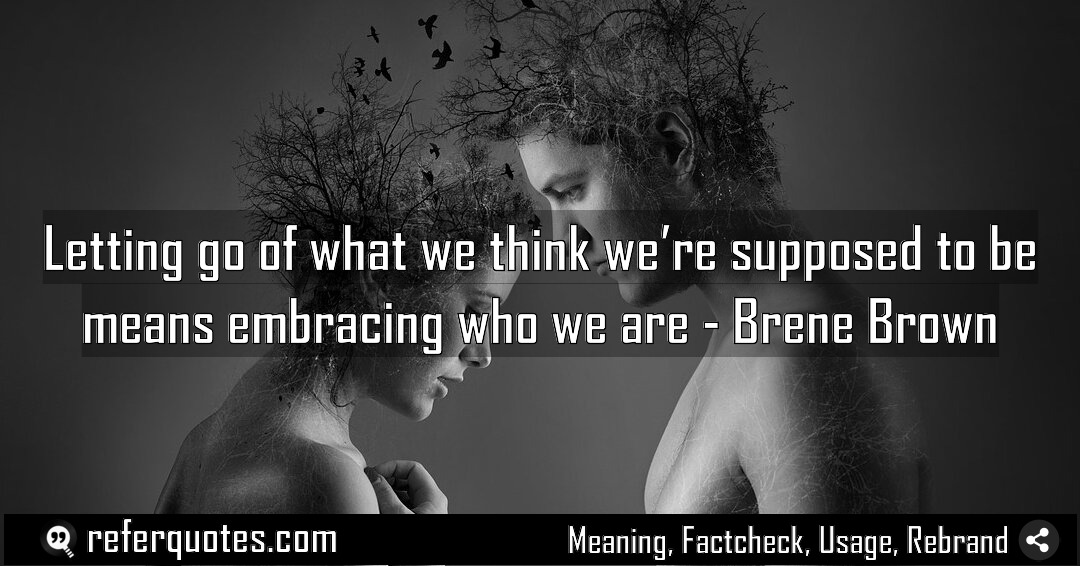Letting go of what we think we’re supposed to be… it’s the secret to unlocking your real power and potential. It’s about trading exhausting performance for genuine connection, and honestly, it’s a game-changer.
Share Image Quote:Table of Contents
Meaning
At its core, this is about a simple but profound swap: you stop chasing an external, often impossible, ideal and start honoring your authentic, messy, and perfectly imperfect self.
Explanation
Okay, let me break this down. We walk around with this “supposed to” script in our heads, right? The script that says we’re supposed to have it all together, supposed to be a certain kind of parent, leader, or partner. That script is exhausting. It’s armor. And it keeps us from being seen. Embracing who we are isn’t about giving up—it’s the ultimate act of courage. It’s saying, “This is me. The real, unedited version.” And that’s where the real magic, the real strength, and the real connections happen. It’s the foundation of what I’d call wholehearted living.
Quote Summary
| Context | Attributes |
|---|---|
| Original Language | English (3669) |
| Category | Personal Development (698) |
| Topics | acceptance (73), authenticity (101) |
| Literary Style | affirmative (75), direct (414) |
| Emotion / Mood | calm (491) |
| Overall Quote Score | 78 (178) |
Origin & Factcheck
This is straight from the research of Dr. Brené Brown. It’s in her 2017 book, Rising Strong as a Spiritual Practice. Sometimes you might see it floating around unattributed, but this is 100% her work, born from decades of studying vulnerability, courage, and shame.
Attribution Summary
| Context | Attributes |
|---|---|
| Author | Brene Brown (257) |
| Source Type | Book (4032) |
| Source/Book Name | Rising Strong as a Spiritual Practice (39) |
| Origin Timeperiod | 21st Century (1891) |
| Original Language | English (3669) |
| Authenticity | Verified (4032) |
Author Bio
Dr Brene Brown is the author of books such as Daring Greatly and The Power of Vulnerability. The TED talk and Netflix production based on her research reached out to millions of audience. She researches effects of courage and vulnerability in shaping people's work and relationships. She leads the Brené Brown Education and Research Group and provides evidence-based insights into practical tools to help people train themselves
Official Website |Facebook | X | Instagram | YouTube |
Where is this quotation located?
| Quotation | Letting go of what we think we’re supposed to be means embracing who we are |
| Book Details | Publication Year: 2017; ISBN: Unknown (based on her talk and workbook materials); Length: ~60 pages (lecture adaptation, Sounds True audio transcript). |
| Where is it? | Section: Authentic Living, Approximate Page 63 |
